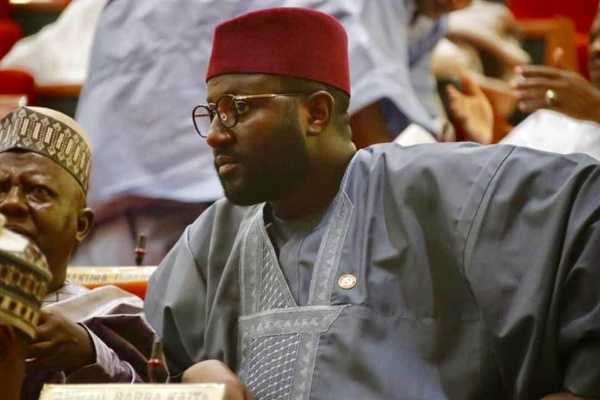By: Joy Musa Kefas
A Former Senator and NNPP 2023 Governorship Candidate in Bauchi Sen. Halliru Jika who recently joined ADC, once a prominent figure in Nigeria’s legislative landscape, is facing renewed public scrutiny over a series of allegations that touch both his professional conduct and personal relationships. The claims, circulating widely in political circles and social media, have sparked conversations about accountability, ethics, and the intersection of power and privilege.
Alleged Irregularities in Contract Execution; Sources close to the National Assembly allege that during his tenure as Chairman of the Senate Committee on Police Affairs, Senator Jika was involved in questionable business practices.
According to these sources and claims, he allegedly manipulated ministry procedures to secure contracts, receiving up to 70% of project funds in advance without executing the work. Documents were reportedly fabricated to suggest completion, while on-ground inspections revealed otherwise.
While these allegations have not led to formal charges, insiders suggest that investigations by anti-corruption agencies such as the EFCC and ICPC were quietly settled, raising concerns about transparency and institutional integrity.
A Controversial Relationship and Legal Battle, beyond the corridors of power, Senator Jika’s personal life has also drawn attention. He is alleged to have entered a relationship with Zara Mukhtari Shagari, granddaughter of former President Shehu Shagari, while she was still married to Faisal Abdullahi, son of former Senator Abdullah Umar of Gombe State.
The situation reportedly escalated when Zara, with support from her mother a legal practitioner and third wife of former Deputy Governor Mukhtari Shagari initiated divorce proceedings against Faisal. The case, which aired intimate details of the couple’s financial struggles and marital discord, was allegedly backed by Senator Jika, who expressed intentions to marry Zara.
The controversy deepened when Faisal’s family accused Senator Jika of interfering in the marriage and sponsoring legal efforts to expedite the divorce. The matter, though largely settled, remains a topic of debate in Abuja’s political and social circles.
However, Observers note that Senator Jika continues to enjoy support from influential figures, including Governor Mohammed Bago and Hon. Muktar Betara, Chairman of the House Committee on FCT. This backing has led to speculation about his potential return to political relevance, despite the cloud of controversy ahead of 2027.
As Nigeria grapples with demands for greater accountability from public officials, the case of Halliru Jika serves as a reminder of the complex interplay between personal conduct and public service. Whether these allegations will lead to formal investigations or fade into political folklore remains to be seen.







